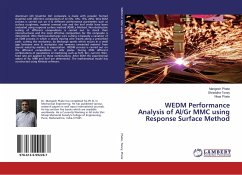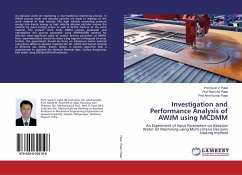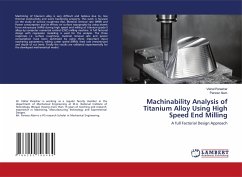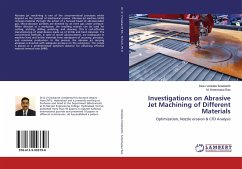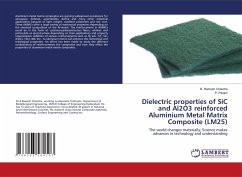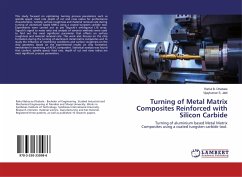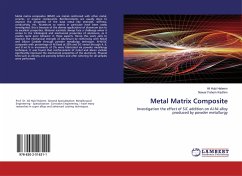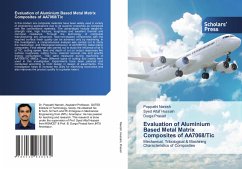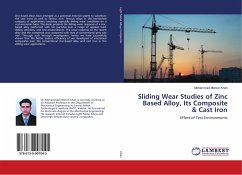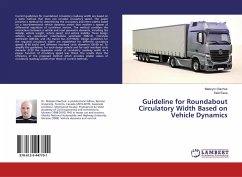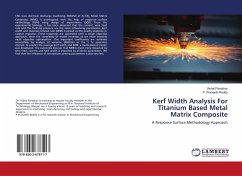
Kerf Width Analysis For Titanium Based Metal Matrix Composite
A Response Surface Methodology Approach
Versandkostenfrei!
Versandfertig in 6-10 Tagen
29,99 €
inkl. MwSt.

PAYBACK Punkte
15 °P sammeln!
CNC wire electrical discharge machining (WEDM) of Al-TiB2 Metal Matrix Composite (MMC) is investigated with the help of response surface methodolgy (RSM) using design of experiments (DOE). From the experimental findings, it has been observed that the current, wire feed rate and the flushing pressure are the most influencing parameters. Kerf width and material removal rate (MRR) is picked as the quality objective or output response. These responses are optimized with a single objective approach, since the complexity of model increases as we move towards multi objective optimization. The importa...
CNC wire electrical discharge machining (WEDM) of Al-TiB2 Metal Matrix Composite (MMC) is investigated with the help of response surface methodolgy (RSM) using design of experiments (DOE). From the experimental findings, it has been observed that the current, wire feed rate and the flushing pressure are the most influencing parameters. Kerf width and material removal rate (MRR) is picked as the quality objective or output response. These responses are optimized with a single objective approach, since the complexity of model increases as we move towards multi objective optimization. The important coefficients are achieved successfully by analysis of variance (ANOVA) at the 5 % assurance interval. To predict the average kerf width and MRR, a mathematical model was developed. The outcomes discover that MRR is much more impacted by wire feed, current and Kerf width is impacted by all three parameters. We find that the influence of interactions among parameters is also very less.



